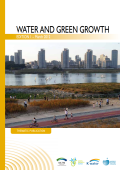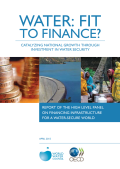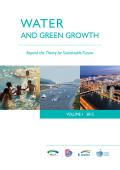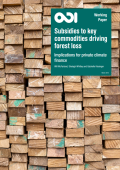
This report is the first major output of a project on Water and Green Growth, led by the Government of the Republic of Korea and the World Water Council (WWC). It is the result of over 12 months of research and analysis by an international group of experts. It provides an analysis of 26 case studies that illustrate various aspects of water and green growth, and then uses the analysis to recommend a draft framework for policymakers.


This report was launched at the 7th World Water Forum in Daegu, Gyeongbuk, Republic of Korea. It presents the research conducted from 2011 - 2014, a new theoretical approach, a revised analytical framework and recommendations for policy makers to begin the process of implementing water and green growth strategies. The report provides a recap of the history and rationale behind the development of the Water and Green Growth Project and concept. The analytical framework used in the report has been developed through numerous discussions between experts in various fields and encompasses strategic, institutional, and practical approaches.
The Europe 2020 Strategy has identified the key goal of smart, more inclusive and sustainable growth. In this direction, redirecting firms’ innovation activities towards ecological targets without hampering their competitiveness is of paramount importance. The double externality issue related to environmental innovations makes the policy intervention crucial in order to avoid sub-optimal commitment of resources to the innovation process and ensure the reduction of polluting agents emissions.

There is an increasing focus on the role that public and private resources can play in supporting activities that reduce forest loss as part of wider efforts to address climate change, and ensure sustainable development.
